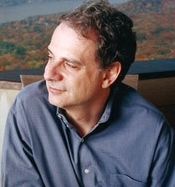


Miniscule differences in data, they said, would eventually produce massive ones-and complex systems like the weather, economics, and human behavior suddenly became clearer and more beautiful than they had ever been before.In this seminal work of scientific writing, James Gleick lays out a cutting edge field of science with enough grace and precision that any reader will be able to grasp the science behind the beautiful complexity of the world around us. In the 1960s, a small group of radical thinkers began to take that notion apart, placing new importance on the tiny experimental irregularities that scientists had long learned to ignore. But even as relativity and quantum mechanics undermined that rigid certainty in the first half of the twentieth century, the scientific community clung to the idea that any system, no matter how complex, could be reduced to a simple pattern. A real inspiration to go forth and discover! Copyright ©️ 2023 Goldmoney Inc.Īll rights reserved.The “highly entertaining” New York Times bestseller, which explains chaos theory and the butterfly effect, from the author of The Information ( Chicago Tribune).įor centuries, scientific thought was focused on bringing order to the natural world. Probably the best biography of Feynman’s life, Genius is highly recommended for anyone interested in the nature of science during the time when his ideas were still rather controversial, to say the least. Because when you know enough it’s obvious that every idea that you have is no good.” “Maybe that’s why young people make success.


It is this part of his creative nature which allowed him to think outside the box. Gleick also describes Feynman’s vibrant life, who in addition to his academia was an avid storyteller and bongo player. “During a sabbatical he learned enough biology to make a small but genuine contribution to geneticists’ understanding of mutations in DNA.” Gleick describes that he not only had a huge thirst to learn but really was a genius, able to learn information extremely quickly, but also critically assess it and contribute. He is especially known for his work in the theory of quantum electrodynamics, as well as the proposal of the parton model in particle physics. The biography offers a comprehensive description of his experiments and theories over the course of more than 50 years.įeynman was one of the most distinguished theoretical physicists of all time, being awarded the Nobel Prize in Physics in 1965. This brilliant biography speaks of the wonderful life of Richard Feynman – the father of modern physics. Published in 1992, Genius: The Life and Science of Richard Feynman’ was written by American scientific journalist and author James Gleick.


 0 kommentar(er)
0 kommentar(er)
